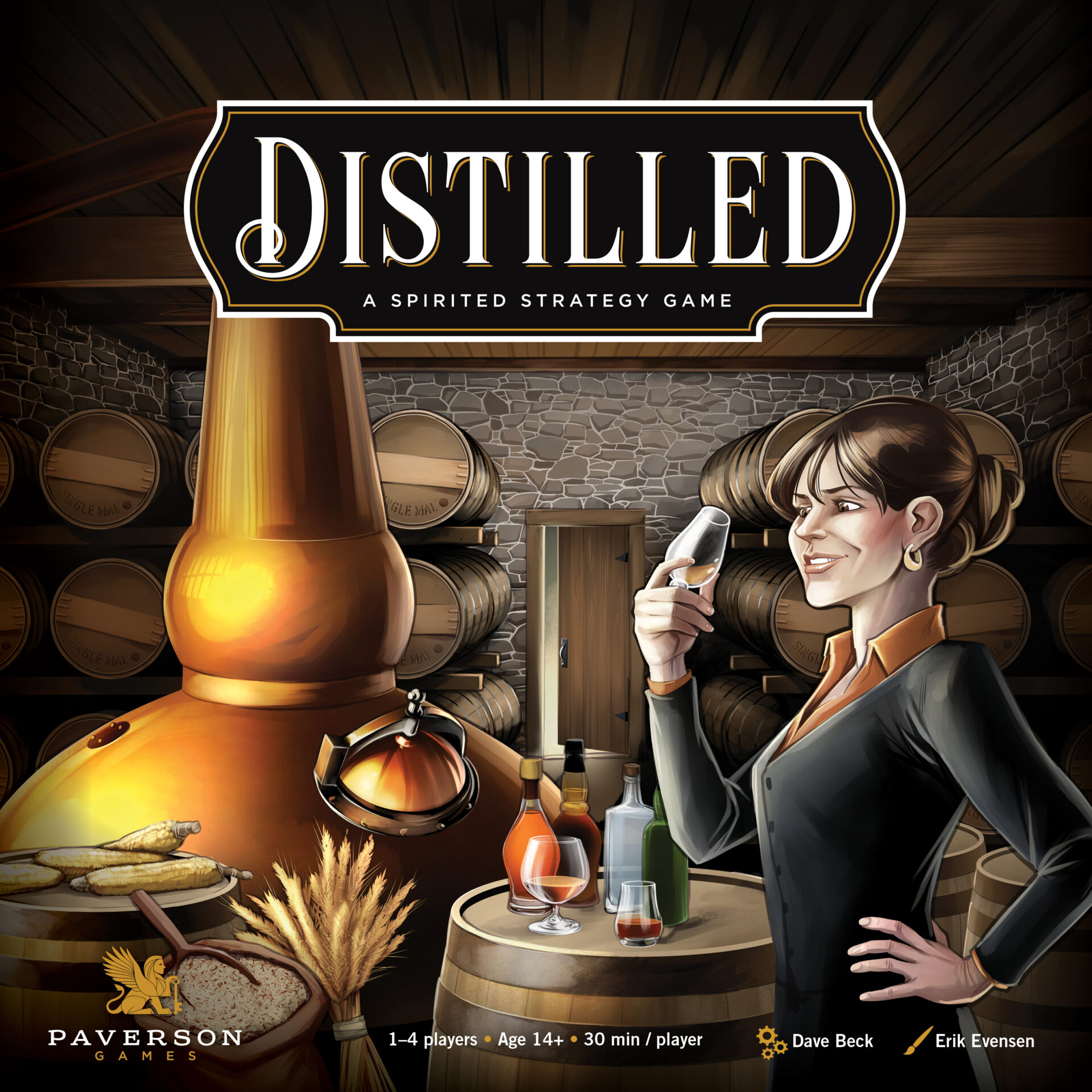Disclaimer: I played Distilled online with Tabletop Simulator, so I’m unable to talk about the quality of the components. Please note that artwork and rules are subject to potential change before release.
Interesting fact: I used to brew beer. I brewed all-grain, which is starting from the grain, hops and yeast, and ending up with tasty, brown, dancing fuel. The process is fascinating, it’s like real magic, seeing these very basic ingredients transformed into something so crafted and nuanced. Distilled, from Paverson Games and designer Dave Beck, is a board game about another of these alcoholic alchemies – distilling.
In Distilled, you play the role of a character who has inherited an abandoned distillery. Your goal is to return it to its former glory, restoring your family’s name, and earning yourself the title of Master Distiller. To do this you need to start small, making basic spirits like moonshine and vodka, before ploughing the profits back into the business, taking on new staff, buying better ingredients, and investing in new recipes.
Whisky business
The bulk of the game in Distilled revolves around a central market of cards. During the first phase of each round, you can spend your profits on the equipment and staff cards I mentioned before, and more importantly, the ingredients. Every batch of booze you distil needs ingredients; namely water, sugars (grains, vegetables, or fruits), and yeast. Some basics are free, or at least very cheap, but the really good stuff costs more. The better the ingredients, the better the Spirit Points (VPs), and the more money you can make from selling your brew, ready to repeat the cycle again.
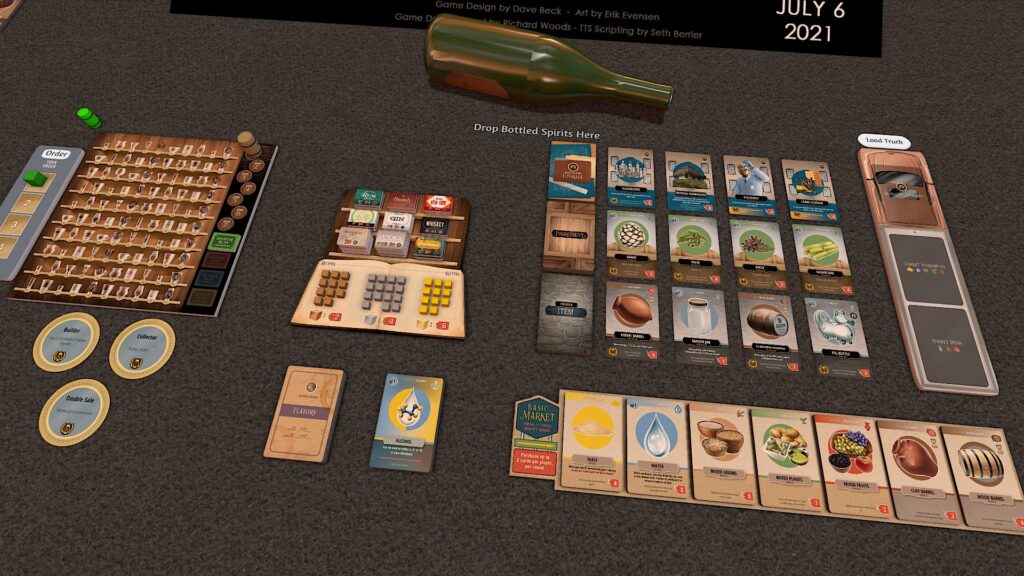
It’s not as simple as just ‘buy all the things and make all the money’ however. You get to choose how many of your ingredients go into your washback (picture a massive bath for mixing it all up), and then you add an alcohol card for every sugar card in your concoction. Then they all get combined into a deck, shuffled, and the top and bottom card are discarded back to your player board for use in a later round. If you’re asking yourself “Why?”, I’m pleased to say it’s actually for thematic, as well as gameplay reasons.
The first and last parts of the spirit that’s created during distillation are called the foreshorts and feints respectively, which are taken off and used for future distillations. You’re left with the ‘heart’, which is the bit you want. That’s really good theming and attention to detail for a Euro game.
That’s the spirit
The gameplay function of losing the first and last cards of your spirit deck is what makes Distilled so much fun. It adds in a push-your-luck element, and I love push-your-luck in games. Let’s take whisky as an example. Whisky needs two grain sugar cards. Sure, you can just add two grain cards to your washback, but what happens if one of them is the top or bottom card, and gets discarded? You’re left making some lesser spirit potentially, which in a game as tight as this can feel like a big loss.
The other option is putting in more ingredients than you need, to increase your chances. The problem with this is that any ingredients you used in your spirit go back to the market at the end of the round. So you might buy three cards of an ingredient, only needing two, knowing that if all three are in the spirit, one is wasted. Distilled is full of these tricky decisions, and it’s part of what makes it so much fun to play. Turning over those top and bottom cards creates a feeling of tension not unlike taking that of risky the extra card in Blackjack, when you’re already at 15.
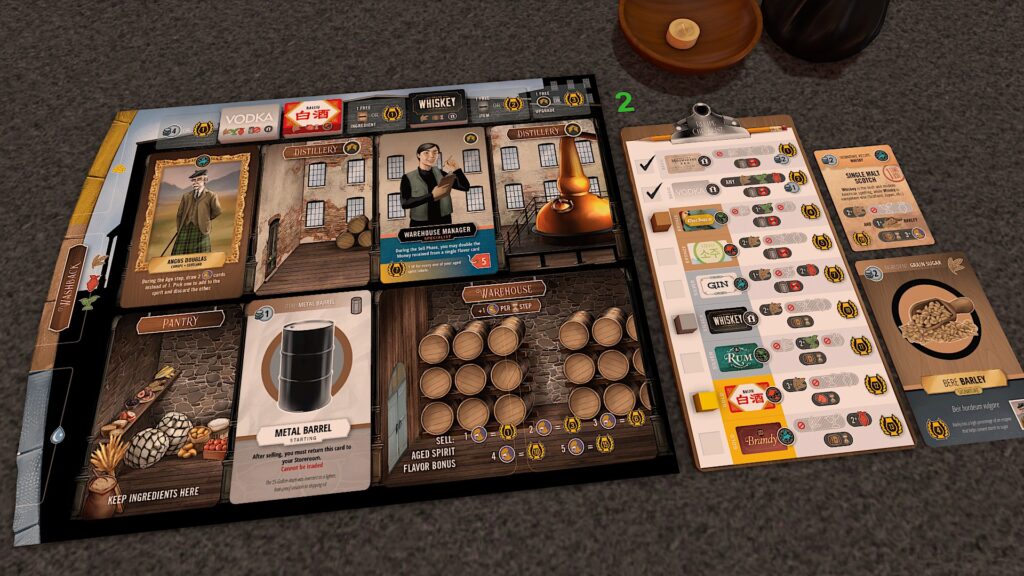
I found it heavy going at first, trying to wrap my head around Distilled’s rules and mechanisms. It’s another classic example though, of a game you should just start playing. The rulebook is thorough and well-written, with great examples, but in isolation doesn’t make as much sense as playing along with it. Once you get going, that deceptively simple gameplay loop of ‘buy some cards, push your luck, reap any rewards, repeat’ is immensely satisfying. It gives me a similar feeling to the one I get when I play The Quacks of Quedlinburg. Everyone starts from nothing, and with good planning and a little luck, you’ll be neck-and-neck right to the end.
Single malt
There’s a great solo mode included, designed by David Digby (Chocolate Factory, Tinner’s Trail). Rather than a beat-your-own-score mode, or an automa opponent, instead it’s a goal-based solo mode, in the same vein as Terraforming Mars. There’s a barrel-shaped pyramid (yes, I know that makes no sense) of goal cards to achieve during the seven rounds the game lasts.
Some of those goal cards are face-down, and flipped when achieve the ones below them, a bit like 7 Wonders Duel. You can’t plan too far ahead, as some of the information is hidden until you’ve completed other achievements. There’s variable difficulty too, so the masochists among you will be happy. It’s not an easy game to begin with, but I can see this adding more life to the game for those who manage to perfect the formula, so to speak.
Final thoughts
I really like Distilled. I like the theme, and I like the way it’s tied into the game so well. I like the artwork and graphic design, and I really enjoy the gameplay. For a debut game, Dave’s onto a real winner here.
Another game this reminds me of is Dominion. That’s no bad thing, because I absolutely love Dominion. I think it’s the feeling of this shared market of cards, working up from the cheap, common ones, to the bigger and better ones. I guess it is a deck-builder in many ways, just with a very transient deck that’s mostly reset after each round. There’s tons of variety in the cards on offer, the characters you play, the geographic restrictions and bonuses offered by those same characters, and the spirits they create. I can honestly say that no two games will play out the same.
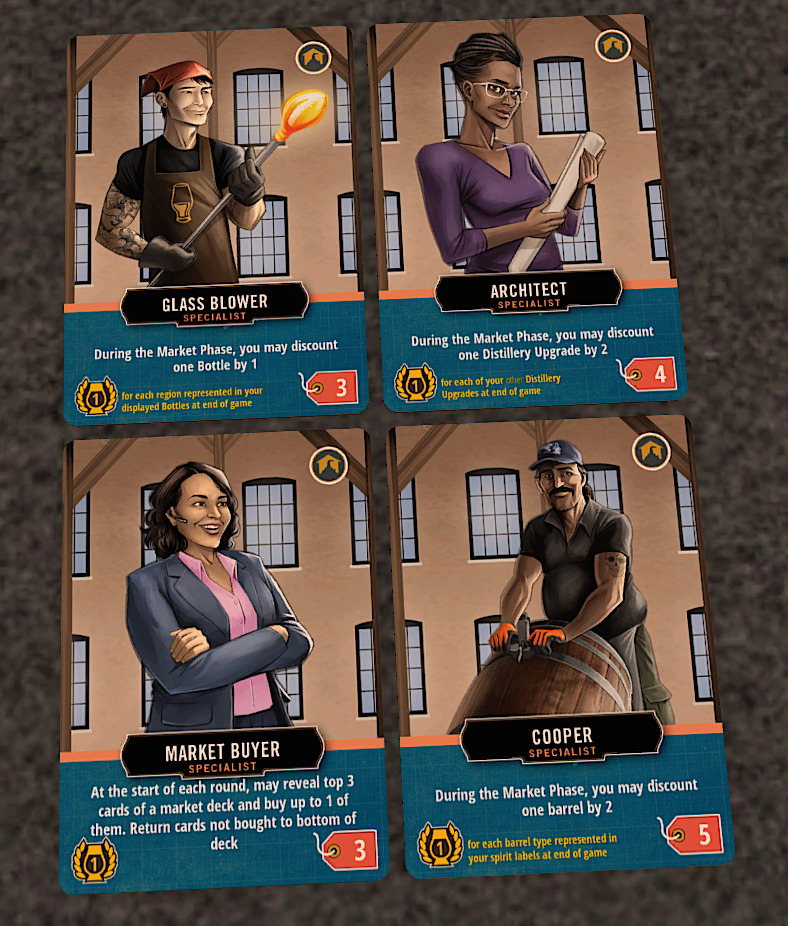
There’s something liberating about playing games only on Tabletop Simulator. The tactile niceties and magpie-like being drawn to shiny components is gone. You’re left with the skeleton of the game to pick over, it’s features and foibles laid bare. It really exposes the game for what it is, and I think if you can play a game and enjoy it on TTS, it’s doing something right. In Distilled’s case, it’s doing a lot of things, very well. Dave Beck’s clearly poured a lot of himself into this game, along with Richard Woods and David Digby, and it really shows. It’s a great game with a lot going for it, and it’s an easy recommendation to anyone who enjoys that Quacks-like mixture of strategy and luck, just with less luck involved.
The Kickstarter launches on 6th July 2021 and you can find it here.
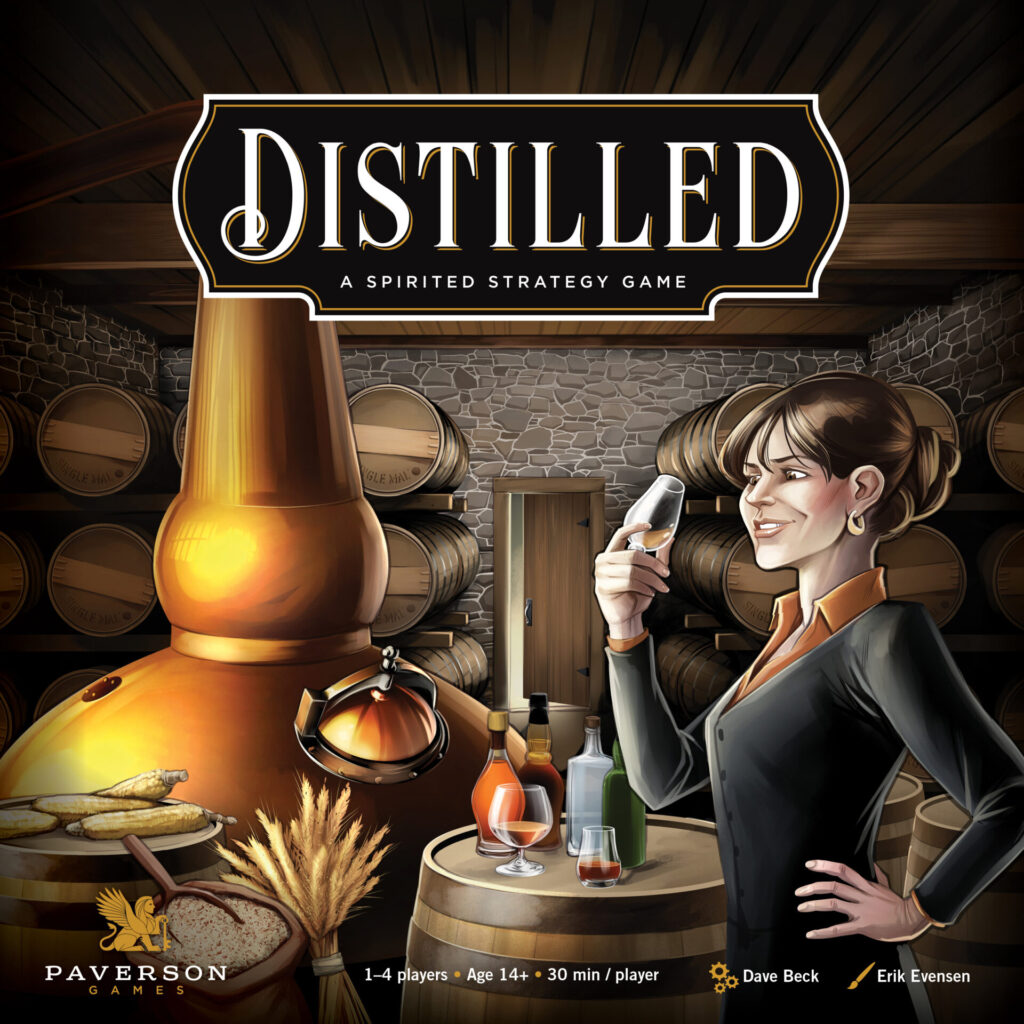
Distilled (2021)
Designers: Dave Beck, Richard Woods, David Digby
Publisher: Paverson Games
Art: Erik Evensen
Players: 1-4
Playing time: 60-120 mins
